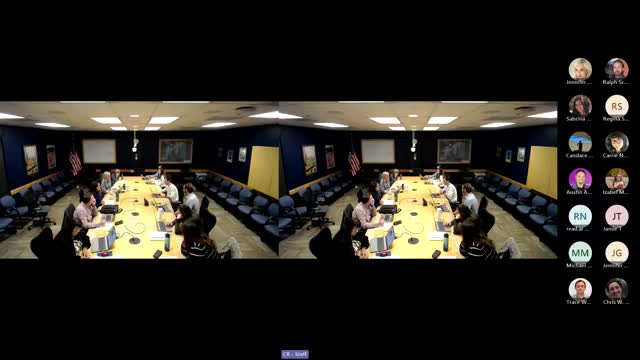Flagstaff minimum wage to be $18.35 in 2026; city office outlines enforcement, tip‑credit phaseout
Get AI-powered insights, summaries, and transcripts
Subscribe
Summary
City of Flagstaff Office of Labor Standards told the Discover Flagstaff Commission the voter‑approved minimum wage will rise to $18.35 in 2026, eliminate the tip wage credit, and remain tied to the U.S. Consumer Price Index; enforcement will be complaint‑driven and can include back wages, interest and penalties.
Chris Grody, manager of the City of Flagstaff Office of Labor Standards, told the Discover Flagstaff Commission that the city’s minimum wage will be $18.35 per hour in 2026 and that a separate tipped minimum wage will be eliminated.
Grody said the wage schedule was set by a 2016 citizen initiative that is “voter protected,” meaning Flagstaff City Council can only change the ordinance with a three‑quarters majority. He described the year‑to‑year adjustments as formulaic, tied to the U.S. Bureau of Labor Statistics’ Consumer Price Index and rounded to the nearest 5 cents.
Why it matters: the change makes the city wage the base pay employers must provide to employees working in Flagstaff regardless of tips, and it alters enforcement and payroll calculations for restaurants, hotels and other local employers.
Grody gave several operational details the city will use to implement and enforce the law. The Office of Labor Standards will publish posters and notices in English and Spanish, provide optional signature forms and tip‑pool notices for employers, run outreach including mailers and radio spots, and field complaints for investigation. He said the office currently does not conduct routine random audits; investigations are largely complaint driven.
“We don’t care if you receive tips in the course of your regular work. … Everybody that works at the City of Flagstaff will have to make the new minimum wage of $18.35 as their base wage from their employer,” Grody said.
On enforcement, Grody described the city’s mandatory penalty structure. If a violation is found, the office calculates owed back wages by pay period, adds 10% annual interest, and assesses an additional penalty (he gave an example in which an owed $100 becomes $100 plus interest plus a $200 penalty). He said the ordinance requires the city to collect those amounts and that the office lacks discretion to reduce the statutory penalty.
Grody also described a compliance pathway that the city has used: if a business discovers and corrects payroll errors before the city completes an enforcement action, the office generally will not assess the statutory penalties and will recover only the unpaid wages. He said that approach has reduced litigated cases and expedited relief to workers.
The ordinance contains an explicit exception for state and federal entities; Grody noted Northern Arizona University and Coconino Community College are treated as state entities and are not required to follow the city minimum wage for student workers on campus. He said remote work and out‑of‑jurisdiction employers present enforcement challenges because municipal court jurisdiction and business licensing limits can complicate cases.
Grody described outreach plans for the coming months — printed posters in two sizes and two languages, sample notice documents for tip policies, mailers to licensed businesses (approximately several thousand active licenses), and social‑media and radio outreach. He said the Office of Labor Standards intends to publish its annual wage update after the Bureau of Labor Statistics releases CPI numbers in September; this year the release date was Sept. 11.
Commissioners thanked Grody for the presentation; no formal action was taken by the commission on the item.
Looking ahead, Grody encouraged employers to use the city’s website resources and to contact laborstandards@flagstaffaz.gov (or flagstaffaz.gov/minwage) with questions.
